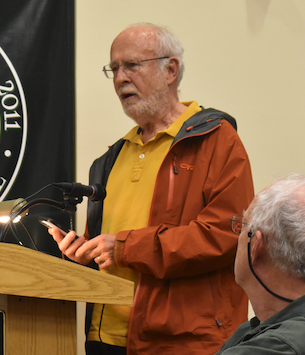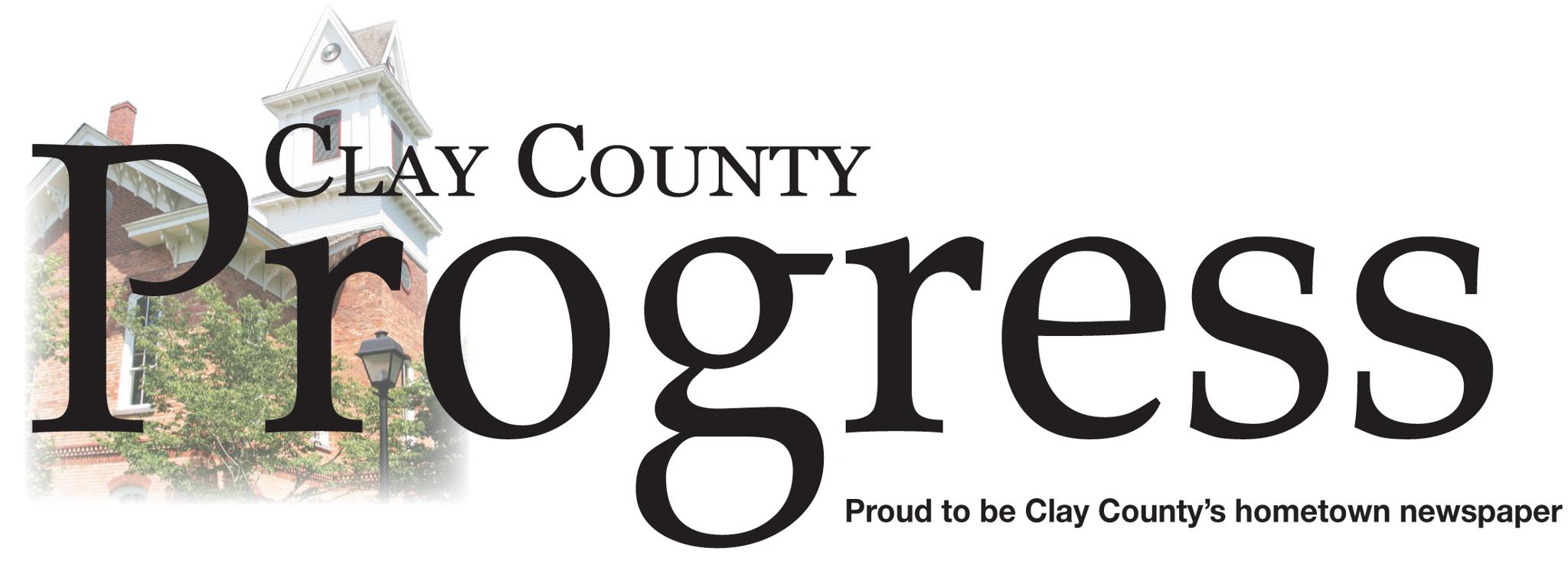
Clay County Commissioners adopted a temporary moratorium on crypto mining after a public hearing last week. The move will prevent those kinds of businesses from operating here for a least 61 days, but the moratorium could continue through Aug. 5 before coming back for review.
The time will allow the county’s planning board and staff to study the impact of building and construction of cryptocurrency-mining facilities and to consider options for regulations and control.
The moratorium was adopted following a Feb. 3 public hearing prior to the monthly commission meeting. A few residents expressed concerns about crypto mining facilities moving to the county and how it would affect our environment and residential areas.
“A number of towns up North have had residential electrical prices go up. If electrical consumption goes way up —it could affect the prices,” said Mike Gora. “What about Lake Chatuge? I haven’t read anything about this in the local paper, but where is the electricity going to come from? Will it mean lower lake levels?”
Regarding cryptocurrency, Gora said “It has no use for humanity. It’s just a way to make artificial money. It’s risky business.”
Teresa McClure expressed her disapproval of a facility moving here.

“My hope is that we do not do crypto mining here in Clay County,” she said, noting that she has spoken with someone who lives near a crypto mining facility in Cherokee County. “If for some reason, the situation arises, I hope it’s done in one of the unused factories. I’ve done a little research and a lot of the companies want to do that. I prefer not to have a neighbor doing that in my neighborhood.”
Crypto mining has been problematic in Cherokee County where two unenclosed facilities are operational. Noise from the operations and heavy consumption of power have been aired as main concerns.
The issue in our neighboring county was noted in the moratorium:. “Whereas, problems have arisen from the industry in Cherokee County as to its excessive energy use and its excessive noise which are having a serious impact on the health, safety and general welfare of its citizens.”
The moratorium referenced cryptocurrency mining facilities as using “an excessive amount of energy and causes an enormous amount of noise from the fans used to keep these facilities from getting too hot as a result of the constant operation of the computers that are stacked within the facility and are constantly operating, generating an enormous amount of heat.”
According to the ordinance, the moratorium was necessary because after reviewing ordinances in Clay County, commissioners determined that the current ordinances and regulations may not adequately address the public health and safety concerns caused by the cryptocurrency mining industries and facilities.
The moratorium will allow the county time to study:
• Appropriateness of land use and whether permitting cryptocurrency mining industries and farms can change the character of the county and alter neighborhood demographics.
• Policies of a comprehensive plan and whether permitting cryptocurrency mining industries and farms will be consistent with a comprehensive plan for the county.
• The availability of public infrastructure and services and whether the present public infrastructure and services can sustain the cryptocurrency mining industry and what the cryptocurrency mining industry will require as to public infrastructure and services as well as the burdens which the industry will place on public infrastructure and services.
• What, if any environmental impacts such land use will have and how those will be addressed.
• Noise concerns and the impact of excessive noise on Clay County citizens.
In other matters before the commissioners:
• An amendment to a October 2021 ordinance governing the development of mobile home parks, tiny home parks, RV parks, campgrounds and other clusters of temporary living units was tabled until further review. A public hearing was held regarding the ordinance on Feb. 3.
The heart of the amendment was to determine when temporary housing such as RVs is considered a permanent home. For example the amendment called for a maximum RV stay in a RV park to not exceed more than 180 days out of a 365 day year. If it does, the structure would be treated as a mobile home and would have to comply with building codes and taxed as a mobile home.
During the comment period, Jason Moore said he sensed a “reluctance” for the county to enforce the existing ordinance. He noted that a big part of the problem is setbacks. “I encourage you to contemplate increasing the setbacks. Part of the problem is they’re on top of each other.”
Currently the setback is 30 feet. Moore noted that the lake is one of the most important assets of the county. “The RV park on Highway 175 looks like a slum from Brazil,” he said. “I urge you to enforce what you have now and contemplate setbacks.”
 Regarding the ordinance, Billy Percell was concerned about what constitutes real property. He noted that about 95 percent of the RVs around the lake have porches attached, concrete slabs and covers built over them.
Regarding the ordinance, Billy Percell was concerned about what constitutes real property. He noted that about 95 percent of the RVs around the lake have porches attached, concrete slabs and covers built over them.
“I think all of that is real property. The way I see it, all these things attached to the RV become the property owner’s property. The RV can be pulled out. Whoever owns that land owns that property [attachments].
After noting good points were raised during the hearing, county attorney Merinda Woody ask the commission to revisit the temporary living unit ordinance during the March commission meeting.
• Todd Goins reported that DSS agencies have undergone a 10-month audit on Medicaid eligibility. It started in April and concluded in January. Results will be presented to county commissioners. Goins noted that the auditors had been “very complimentary,” regarding his staff’s record keeping. Goins also received permission TO begin a record retention plan following state guidelines.
•A $250,000 upset bid to buy the former Elections Board office on the square in Hayesville was accepted by the county commissioners.
• Permission was granted for the infusion clinic at the health department to have an across the board fee of $75 for COVID therapy infusions. Director Clarissa Rogers noted that those who cannot pay should contact them and they will try to find grant money to take care of the infusion. The $75 fee is also for those who have insurance, but that insurance does not pay for the infusion and it can go toward a high insurance deductible. The infusion clinic has provided about 350 doses to COVID positive patients to date.
